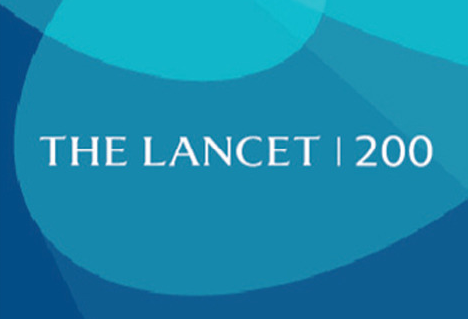the health strategist
institute for continuous health transformation
and digital strategy
Joaquim Cardoso MSc
Senior Advisor for C-Level and Boards
January 6, 2023
In one phrase:
- The Lancet is celebrating its 200th anniversary in 2023 by reflecting on its history and focusing on five critical priorities for the 21st century.
- The critical priorities that The Lancet is focusing on as part of its 200th anniversary celebrations are: universal health coverage, child and adolescent health, mental health, climate and health, and research for health.
Executive Summary
- The Lancet, a prestigious medical journal founded in 1823, is celebrating its 200th anniversary in 2023.
- As part of the celebrations, the journal will reflect on its contributions to medicine and its role during a period of imperial expansion, as well as focusing on five “spotlights” that it sees as critical priorities for the 21st century: universal health coverage, child and adolescent health, mental health, climate and health, and research for health.
- The Lancet believes that the academic medical community is a neglected contributor to social progress and that the science it publishes can be used to advance health and health equity.
- It will publish an anniversary issue on October 7, 2023 and consider how the past two centuries might inform the coming two centuries of medical practice and research.
DEEP DIVE

The Lancet
Editorial
January 07, 2023
Thomas Wakley, a 27-year-old apothecary, surgeon, and sometime boxer, founded The Lancet in 1823.
Wakley’s intention was to publish reports of metropolitan hospital lectures, at the time a highly profitable activity for a small coterie of powerful physicians and surgeons in London.
In addition to dismantling this private monopoly over medical knowledge, Wakley also hoped to provide “a correct description” of important clinical cases-”a complete Chronicle of the current Literature”.
His audience was national (city and country doctors) and global (“Colonial Practitioners”-a group for whom we must make our own accounting).
But Wakley’s Lancet was not only a journal. It was also an idea.
Wakley understood that he would face “interested opposition”, and so he saw The Lancet as an instrument (hence the journal’s unusual name) to cut out the corruption in medicine.
In addition to dismantling this private monopoly over medical knowledge, Wakley also hoped to provide “a correct description” of important clinical cases-”a complete Chronicle of the current Literature”.
Wakley understood that he would face “interested opposition”, and so he saw The Lancet as an instrument (hence the journal’s unusual name) to cut out the corruption in medicine.
Medicine may seem very different in the 21st century.
But the inequities of 19th century medical practice remain just as profound-imbalances in power, inequalities in resources, and disparities in access to high-quality health care.
And so Wakley’s idea-that The Lancet should somehow be more than a scientific journal of record-remains an animating spirit for us today.
- We believe that the academic medical community is a vastly neglected contributor to social progress.
- We believe that through extraordinary partnerships, the science we publish can be used as an instrument to accelerate action to advance health and health equity.
- We believe that medicine and medical research are political as well as scientific activities.
Medicine may seem very different in the 21st century. But the inequities of 19th century medical practice remain just as profound-imbalances in power, inequalities in resources, and disparities in access to high-quality health care.
While we cherish our independence and acknowledge our privileged position to have witnessed many pivotal medical advances-from the advent of surgery and antisepsis to the discovery of statins and coronavirus vaccines- …
… we also recognise that The Lancet has, at times, been complicit in grievous violations of human rights.
The legacy of colonialism inevitably looms large in our history.
During the coming year, we will not only reflect on our contributions to medicine, but also invite scholars to review of the journal’s role during a period of imperial expansion.
2023 is a moment to mark an important milestone in our history.
We also want to use the year as a means to draw attention to health issues that we see as critical priorities (“spotlights”) for the present century-universal health coverage, child and adolescent health, mental health, climate and health, and research for health.
For each spotlight, we will be running a programme of activities to promote the asks we are proposing for each domain.
We will be publishing an anniversary issue of The Lancet on Oct 7, 2023, to coincide with publication of the first issue of the journal.
We will use this year to consider how the past two centuries might inform the coming two centuries of medical practice and research.
The outcomes are likely to be surprising.
Originally published at https://www.thelancet.com.




